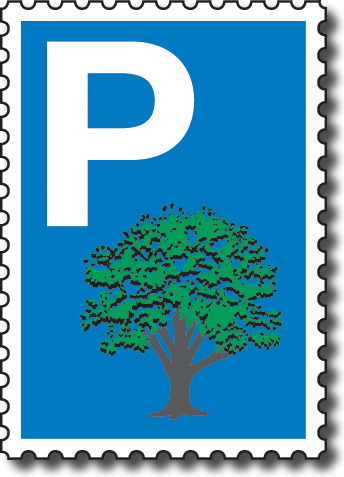Fountains
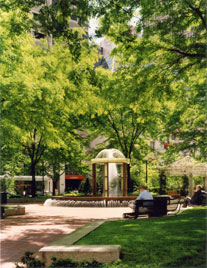 Two pieces of public art were designed by Howard Ben Tré (1949-2020), a Rhode Island sculptor of industrial elements and glass, to complement the natural design features of the Park. The classical forms of the sculptures in both the north and south plazas make general reference to the formal architectural presence which characterizes the City of Boston. The sculptures make specific reference to traditional garden structures, thus reinforcing the Park as an oasis in the surrounding urban setting.
Two pieces of public art were designed by Howard Ben Tré (1949-2020), a Rhode Island sculptor of industrial elements and glass, to complement the natural design features of the Park. The classical forms of the sculptures in both the north and south plazas make general reference to the formal architectural presence which characterizes the City of Boston. The sculptures make specific reference to traditional garden structures, thus reinforcing the Park as an oasis in the surrounding urban setting.
Easily visible from distant points within the Park as well as from adjacent buildings, “Immanent Circumstance” is the central glass and bronze sculpture/fountain Ben Tré completed in 1992. Its height presents a vertical image and core or focus to the space, which is defined by the surrounding granite rings and paving. Translucent and water-like in its color, the column glass is “entrapped” in bronze, while the ring of glass seems to float above. When the fountain is operating, the large volume of water adds the element of sound, increasing the intensity of the core of the space, while the dome created by the rising water makes a literal apex in the plaza.
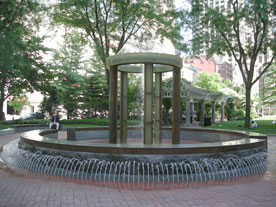
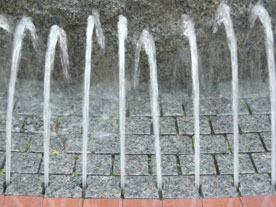
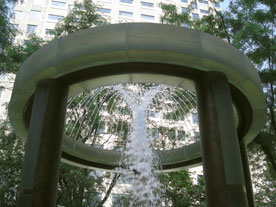
A second Ben Tré fountain (see photo on right) anchors the teak bench seating area at the south end of the Park. The glass and bronze urn derives from the compacted form of the upper glass ring of “Immanent Circumstance”. Again, the bronze “entraps” the glass. The urn is scaled to allow the pedestrian to feel a one-to-one relationship with it. Those approaching from the south will be able to look over the top of the urn and view the larger sculpture in the distance, making the connection between the plazas. The urn, filling and overflowing, is intended to create a calming, meditative effect in contrast to the bustling activity surrounding the south plaza. The underlying concept for the north plaza and south plaza artwork is the creation of two site-specific unique and intimate spaces which exist independently and in dialogue within the larger context of the Park.

